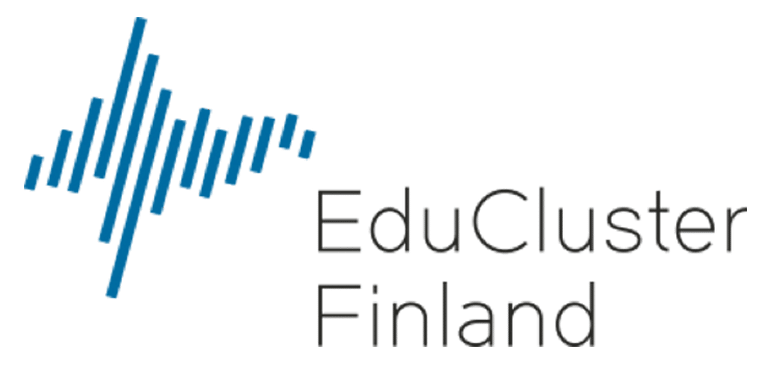We would love for you to share your thoughts about the current topic and suggest new ones for us to share.
Please note that the programme requires you to leave your email address but it will not be visible to others.
Please note that the programme requires you to leave your email address but it will not be visible to others.
E-mail | info@educluster.fi
© 2025 EduCluster Finland Ltd, University of Jyväskylä Group, Finland
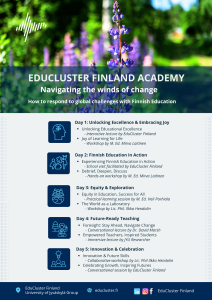
Once you have registered for a course, you will receive a booking confirmation via email at the address provided during registration. We will send you a payment link after the course registration closes. A payment of 50% of the total course fee is required within 7 days of receiving the payment link. The remaining balance is due 14 days before the first day of the course.
If you are unable to attend due to unforeseen circumstances, you may choose from the following alternatives:
All cancellations must be communicated via email to academy@educluster.fi
If a visa application is denied, a written statement from the issuing authority is required as proof. In this case, a full refund will be provided.
A minimum of 15 participants is required for the course to take place. If this number is not met, we reserve the right to modify the course structure or cancel the course. In the event of cancellation, all fees paid by registered participants will be refunded at least 4 weeks before the scheduled start date.


Who am I?
My name is Linda Id, and I’m a final-year student at the University of Eastern Finland. In October 2024, I had the privilege of completing my internship at Q.F.I. School. For four weeks, I was part of the Grade 1 and actively participated in the daily life of the school. This practice was my final one, and it couldn’t have been a more enriching experience.
What motivated you to apply abroad?
After completing an exchange program abroad, my interest in working in an international environment was strongly reinforced. Although I had limited experience teaching in English, my coursework as an exchange student was conducted entirely in English, broadening my perspectives on education and deepening my aspiration to work in a global setting. I was highly motivated to develop as an educator and to acquire new knowledge and skills. Having completed multiple internships in Finland, I felt prepared to embrace new challenges and push myself further. Additionally, I had received highly positive feedback regarding international teaching experiences, which further strengthened my resolve to pursue this opportunity. This motivation led me to apply for a position abroad, not only to reflect on my current identity as a teacher but also to critically consider the kind of educator I aspire to become in the future.
What was your workday like at your school?
I typically started my days at the same time as the other teachers, which meant I was at school by 7:00 am at the latest since the first lesson began at 7:30 am. During the first week, I focused on getting to know the students, teachers, and the school’s daily routines. I made sure to observe as many lessons as possible, and during breaks, I often had conversations either with my supervisor or with other teachers and staff. When I joined lessons, I assisted students with their tasks and supported them in any way I could. Lunchtime was usually spent in the canteen, where I ate with both students and other teachers. In the final two weeks of my placement, I became more independent in planning and teaching my lessons. I spent time preparing for upcoming sessions to ensure everything was ready, and I found a good balance between teaching, observing, and lesson preparation throughout the day. My workday typically ended when the students left, usually around 1:00 pm.
What competencies are the most valued in an international environment?
When doing teaching practice abroad, the most important qualities are being social, open to meeting new people, and approachable with students, parents, and staff. Cultural awareness and adaptability are key to respecting local norms and building strong connections. Being hard-working, sharing your ideas, and staying open-minded are also highly valued, helping you integrate into the community and thrive in diverse educational settings.
What were the highlights of your training practice?
I had an absolutely amazing time in Qatar. There were many highlights during my training, but the most memorable and meaningful were the students and the time I spent with them, as well as the conversations we had. The feedback from my supervisor and other teachers also left a strong impression on me. These experiences will stay with me and have a long-lasting impact for the rest of my life.
Who would you recommend a teaching practice abroad to? How would you advise them?
I would recommend a teaching practice abroad to anyone who is eager to develop themselves, adventurous, and looking for new challenges in life. Staying within your comfort zone may feel easy and familiar but stepping outside of it opens the door to learning and experiencing things you wouldn’t encounter if you stayed within those boundaries. If you dream of working abroad, teaching practice is a great first step toward that dream—it gives you a taste of what it might be like to work in another country, while helping you to grow both personally and professionally.
My advice would be to embrace the experience with an open mind, be flexible, and remain adaptable to new cultures and teaching styles. On the other hand, be respectful of local customs and traditions, as understanding and appreciating the culture will enrich your experience. And lastly, stay positive and proactive—there will be challenges, but they are opportunities to learn and grow.
FAQs Recruitment 2025
Requirements/Qualifications
Open Positions
Employer
Work Contract
Salary and Compensation Package
Children’s schooling
Recruitment Process
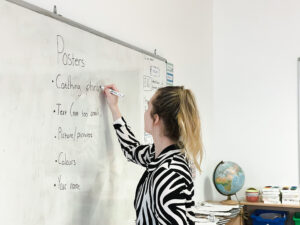
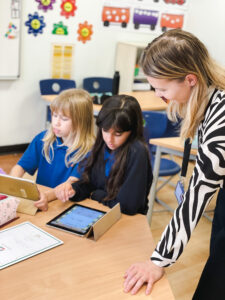
Sanna was a teacher trainee at the Qatar-Finland International School in early 23. After the training period, she applied in ECF’s teacher recruitment and was selected as a class teacher for the Q.F.I. School, starting on August 2023.
Who am I?
My name is Sanna Messman, and I was a student at the University of Oulu. At the beginning of the year 2023, I was a teacher trainee at Qatar-Finland International School. For four weeks, I was part of grade 4 and school’s everyday life. This teaching practice was the last course before I graduated, which was the perfect ending for my studies at the university.
What motivated you to apply for a training placement abroad?
I have always been curious about where I could possibly work as a Finnish class teacher when I have a master’s degree in education. Before my trainee period, I didn’t have much experience in teaching in English, but I wanted to challenge myself as a teacher. Also, I wanted to consider what kind of teacher I am and what kind of teacher I wish to be in the future.
How was your typical day (during the placement practice)?
I started my days at 7.30 am, and my days ended around 3.00 pm. During the first two weeks, I took my time to get to know students, teachers, and the school’s daily routines. I observed as many lessons as I could, and during the breaks, I had conversations with my supervisor. When I participated in lessons, I was able to help students with their lesson work. I usually ate my lunch in the canteen with students and other teachers. Last two weeks, I planned and taught lessons more independently. Then my typical day was to organize upcoming lessons and make sure that all necessary lesson materials were prepared.
What were the highlights of your trainee period?
I had absolutely the best time in Qatar. If I need to choose a couple of highlights of my trainee period, I would say an opportunity to meet many talented and professional teachers doing very important and influential work abroad. Also, I consider myself lucky to meet so many wonderful and skillful students. My trainee period was a perfect mix of developing myself as a teacher but also exploring a foreign country and its culture.
To whom would you recommend a teaching practice abroad?
To anyone with an adventurous mind and an interest in working abroad one day. Teacher practice abroad is a great start for your career path because it expands your knowledge of which professional skills are required for a teacher, how the Finnish National Core Curriculum is implemented in school pedagogy around the world, and you can create connections with teacher colleagues abroad.
Is there anything else you’d like to say?
Whether you choose to apply for trainee placement at Qatar-Finland International School or other EduCluster Finland’s partner schools, you will gain valuable teacher experience in a multi-linguistical and multicultural environment. Sometimes stepping out of your comfort zone develops you as a person and offers you life-long memories. At least my experience was one of a kind and unique.
Finland International School Thane is in the city of Thane, which is a suburb of Mumbai, India. The curriculum and practices of the existing comprehensive school with nearly 1500 students will be transformed into Finnish in stages, starting with early childhood education and primary grades. The first batch of Finnish Mentor Teachers, the Finnish Academic Principal and the Head of School will start working at FIS Thane this summer. Their main task is to mentor the school’s 80 local teachers and support the entire work community towards Finnish operating culture.
Open positions:
This position offers you a completely unique opportunity to utilize your Finnish pedagogical expertise in special education in the international setting. You mentor and guide your local colleagues in detecting students’ need for support and implementing systematic support. In addition, you get to create and develop school-wide support processes in collaboration with your colleagues and school leadership.
The job involves working with students and teachers in grades 1-9.
The main responsibilities of the Special Education Mentor Teacher:
Finland International School South Mumbai is in the city of Mumbai, India and will be launched in August 2023 to start with grades from nursery to grade 4. The school’s curriculum is based on the Finnish National Core Curriculum with local adaptation and additional content to align with Indian standards. The school’s Finnish Principal and Finnish pedagogical staff members will be working closely together with local and international educators co-teaching, mentoring, and learning from each other.
Open mentor teacher positions:
One of the class teacher positions is planned to be upgraded with Vice Principal duties. Priority for this position is given to an applicant with previous experience in administrative and/or Vice Principal duties. Please let us know in your application if you are interested in the position in question.
The main responsibilities of the ECEC teacher:
The main responsibilities of the Class Teacher:
Finland International School Pune locates in the city of Pune, India. The first of its kind in India, the school opened its doors in August 2022. The Finnish National Core Curriculum is at the heart of the school’s operations, with best practices from Finland merged with local requirements. Currently hosting grades from nursery to grade 4 (ages 2–9), the school will gradually expand to a full K12 model. The school Principal and half of the staff is from Finland.
Open positions:
The main responsibilities of the ECEC mentor teacher:
Sini Parampota is a global citizen with more than 20 years of diverse experience, sitting on several national, regional and international technical committees and career development professional bodies, including the APCDA Board of Directors and the Program Committee, as well as the NCDA Ethics Committee.
Her work centers in developing career guidance ecosystems through cross-organizational collaboration, innovation, exchange of knowledge and research, with a particular interest in untapping career guidance potentials to improve the transition of People with Disabilities into Labor Market systems and encourage employers to create more inclusive workplaces.
Through her work she realized the formation of strategic relationships with key institutions such as UNESCO, ILO, OECD, EduCluster Finland, US Embassy in Doha, the Ministry of Education and Higher Education in Qatar, as well as Qatar Foundation’s Higher Education Division among others.
For the last decade she worked with the Qatar Career Development Center, a member of Qatar Foundation, where she coordinated the development of a set of national level projects including the National Career Guidance Framework and a Qualification Programme for Career Practitioners. She co-developed and lead the biannual Career Guidance Stakeholders Platform. She was also the lead expert of QCDC’s inclusive programs; her Career Readiness Program for students with special needs was integrated in 2022 into the Awsaj Academy Empower Class curriculum, giving students the opportunity to obtain a High School diploma recognized by the Qatari Ministry of Education & Higher Education.
Sini has authored and co-authored various publications and delivered numerous presentations that enrich and support career planning practices, as well as influence policymaking in the State of Qatar. She is an alumna of INSEAD and Harvard Kennedy School Executive Education, and a doctoral student of Social Care, Management and Leadership at Tavistock & Portman, NHS Foundation Trust.
Programme for both events
Job description for a Vice Principal
Who are we?
Annulotta Marjanen, a special education teacher, with a background as a class teacher.
Joonas Marjanen, a music teacher, with a background as a class teacher.
What motivated us to apply abroad?
For both of us, this is not the first experience living abroad. Annulotta has lived six years in Thailand back in the 1990’s and Joonas has lived in Sweden for the first four years of his life and later a year in Mexico as a high school exchange student.
We were somewhat familiar with the Arabic culture before applying to work for EduCluster Finland. Annulotta’s brother used to work in the United Arab Emirates and working in the region seemed to be an interesting challenge to take on. We both have an international mindset – getting to know different cultures and understanding them have always fascinated us. Qatar-Finland International School and Finnish education export was something we wanted to know more about.
It was time to test and develop ourselves in terms of professional growth. Both of us had a few years of teaching experience but we were still under 30. Working and living in an international environment was a step we both desired to take.
What is/was a teacher’s workday like at your school?
We wake up around 6:00 am in the morning and leave to work before 7:00 am. Everyone needs to be at workplace from 7:30 am until 3:00 pm. During the working hours we have usually 4-6 lessons and possible break supervisions. Break supervision is also an active duty especially when supervising the younger students. As educators we need to stay alert, be involved, and guide students with their self-regulation skills. Rest of the time is allocated for planning with the units we work with, own planning and assessment, contacting and meeting the parents as well as participating in professional development programmes.
Some days it may take longer to get the work done. There are people who prefer to leave punctually and complete unfinished tasks in the evening. Sometimes, we stay at work a little longer if needed to get the important work-related tasks done. During the 15-minute commute back home we usually de-brief how our workday has been.
Work is in many ways more intense here than in Finland. Here we are not only working as teaching professionals but also representing Finland and promoting the Finnish education system.
Day of a SEN (Special Education Needs) teacher
My usual workday begins by checking the Teams application already on my way to work. There might be important information and messages I need to be aware of.
When we arrive to school, I collect and prepare the teaching materials according to my SEN schedule. First, I will go to Unit 3 and support 3rd graders in their English lesson. When arriving to any Unit, I have a habit of greeting the students and asking how their morning or day has been so far. I take the time to listen to them if they have something on their mind or need an adult support. After the first lesson I gather a group of 3rd graders and we go outside for a half an hour break time. In
November, the weather is getting very pleasant and the break time gives the students a great opportunity to move, run, play, and relax.
My day continues in Unit 2, working with 2nd graders and supporting them in their Math lesson. My work includes supporting students both individually and in groups, co-teaching together with the class teachers, screening and following up on students’ skills in various ways. Days can be very different and during the week I am participating in admission processes, multi-professional student welfare meetings, support team meetings, parent meetings, Unit meetings and planning time with the other teachers.
Collaboration with different teams and Units is the very essence of what I do. Listening to my colleagues and providing help with the students’ support needs builds the foundation and guides the planning of my work.
Usual day of a Music Teacher
When arriving at school, I sit down for a cup of coffee in the staff lounge. While catching up with colleagues nearby, I check Teams on my laptop. Usually, there are a few notifications that require my attention from the admin or colleagues. I teach mostly the upper grades where students are generally more self-oriented.
I go to the music room to set everything ready for the first lesson starting at 8:00 am. I have two 45-minute lessons back-to-back for two groups of Grade 7. Our curriculum is very close to the Finnish one with some local adaptations, so we usually sing and play together while learning bigger entities about musical elements, music history, or for instance different musical genres. Even though music may not play as big role in everyday life and in the community as it does in Finland, all students across the grade levels are very engaged and eager to participate and learn.
I have a 25-minute break before the grade 8-9 elective music lesson to set up the classroom and to make sure I have my presentation slides in order. During a skip lesson around 11 am I have my lunch in the canteen. Canteen offers good quality food for both students and staff for a reasonable price. After lunch I have my half-an-hour break supervision at the football field where I ensure that the students play fair, take turns, and respect others.
Last lessons of the day are high school World Music module MU3 for ten motivated students. At 2:00 my teaching for the day is done. I have time to do some planning for the next day, prepare learning material, and tidy up the classroom.
What competencies are the most valued in an international environment? (global competencies & knowledge)
Social and communication skills are most definitely in the very core of everything we do. Teamwork is a large part of our everyday school life, and collaboration skills are very much needed.
As educators in an international setting, it is important to have pedagogical creativity and ability to apply differentiation in you work – in planning, teaching, and assessing. Teachers need to have a strong professional self-confidence and classroom management skills.
We need to be flexible when facing any kind of changes. Ability to learn new competencies and putting those skills into practice is highly important. Organizational skills and the ability to manage
large entities are valuable strengths to have. Professional development and positive challenges keep you awake and ready for what is coming.
What are the highlights of your job?
Cultural diversity is one of the best parts of working at Qatar-Finland International School. There are over 60 different nationalities in our school community. It is very eye-opening as well as fascinating to get to know people from so many different backgrounds.
Students are motivated to learn new things: seeing their growth and working together towards the goals is highly rewarding. Constructive collaboration with parents and working in a community of educational professional and experts is motivating.
Challenging yourself professionally is encouraged and supported. Different kinds of responsibilities and positions (i.e., being a team leader, curriculum development work) have given us valuable experience for the future.
As a Finnish teacher you may not see you are special. Having grown in Finland, gone to school in Finland, studied to be a teacher in Finland, it is obvious that the only education system you know. When you get good feedback from international colleagues or visit other schools with different education system, you will notice that our child-centred, learning-by-doing approach is actually quite unique.
What kind of new challenges have you faced working abroad? (challenges)
We are here not only to offer good education and top-quality lessons, but to educate our students to be polite, tolerant, empathetic human beings and influence the way this generation thinks. The society in Qatar is very heterogeneous as most of the population are expats. The culture is different in many ways and obviously you need to respect the local customs and traditions.
Teachers create most of the learning material by themselves. Together with all the aforementioned tasks and of course teaching, our workdays are quite packed. Over the years we have become more and more efficient in planning our own work.
All in all, we have been able to challenge ourselves professionally as much as we have wanted to.
Who would you recommend your job to? How would you advice your future colleagues? (suitability /do’s & don’ts / tips)
Life itself is very pleasant in Qatar. It is sunny around the year, the school community is amazing, and there are many things to do on your free time. English is more widely spoken than Arabic which may come as surprise.
Teaching abroad is a great, eye-opening opportunity to refresh your idea of Finnish pedagogy. You need to have the intrinsic motivation to develop yourself and do your part for the good of the whole work community. Step out of your comfort zone until it becomes your comfort zone.
“If it excites you and scares you at the same time, it probably means you should do it”. I think this quote tells quite a lot about the whole process when beginning to think and apply for the school projects abroad, until you notice you are really sitting in the plane heading towards an unknown adventure. I might have wondered sometimes what on earth am I doing here but never regretted it. I have a family with 3 children. That causes a few scares and challenges but probably you can solve them and learn about life while doing that.
I am the lucky one since my husband is also a teacher. Even with the same competences with me. We both have been teaching in CLIL classes many years in Finland and we both have studied English subject teacher qualification. We are both able to work in the same projects which makes life in many ways simpler. Who wouldn’t like to have variation in life by taking a 1 – 2 years contract in a warm and sunny place? It is in these kinds of places that these projects usually take place. But if you have children and especially if they are already of school age like our children were (12, 10 and 7) when we at the first time in 2012 participated in Abu Dhabi project, it might cause in the beginning more worries than positive excitement.
As a comfort I can say after facing all those worries together with my family, it only has increased our togetherness and made us stronger as a family. The first half of the year is highly challenging, I would say horrible. Adapting to the new country, culture and environment takes a lot but nothing you cannot get over. Usually with these challenging steps comes one of the best things in these foreign projects – your Finnish colleagues as well as your local colleagues. Naturally there will be other Finnish teachers with the same enthusiasm to develop themselves and their work, with the same values, spirit and ideologies and that means a lot. Getting to know new amazing personalities is absolutely the salt of these foreign projects.
For me maybe the hardest part in these adventures has been being apart from the rest of your family. In this last project of ours, our older children stayed in Finland and only the youngest (15 years old) came with us. After one year she decided to stay in Finland and continue her high school in Finland. The great thing is how easily you can stay connected to your dear ones wherever you are in the world nowadays. In our case being separated as a family has turned out to be a positive thing when talking about the “children” becoming more independent persons.
Absolutely the best thing about project work is team teaching. We can’t bring any education system just as it is to any other country. That is why the cooperation and planning with the local teachers is essential. Learning hand in hand can be very motivating and fruitful at its best. At the same time you are given an opportunity to learn from a different culture a lot.
A Finnish teacher is an expert in Finnish education but it doesn’t mean you just bring in your expertise. The idea is that you adjust Finnish education with the local expert teachers to their needs and culture. This offers the teachers fruitful learning opportunities. Sometimes it is challenging to find the right ways to apply education to the new environment, but desire to solve problems together as well as honesty are the key elements. Personally I believe I am spreading goodness when applying Finnish Education system in new environments. Any education system is not perfect and Finnish education has its own challenges too. But basically the child centered, holistic approach with the Finnish way to support child’s learning is really working in real life.
I would recommend school project work for all those teachers who are ready to face their weaknesses but also recognize their strengths. This is for the teachers with a good attitude! Attitude is the most important thing. Professionally cooperative skills are essential and of course sufficient English language. The rest depends on your own passion and interest. My passion has been, and still is, CLIL teaching and cooperative learning. Thanks to the last project abroad, I am very interested in how to develop the students’ thinking skills. Whatever your passion is, bring it into these projects.
My name is Leena Veräjänkorva. In spite of being in “an adult’s age” 51 years old, I am still an adventurer teacher who wants to learn new things. These adventures have just strengthened my desire to learn more about life and myself. I am so grateful for those people who are working for education export. What an opportunity for us, teachers!
Helena Kasurinen PhD, has specialized in developing advice and counselling services for citizens in educational settings and working life, processes and standards on practitioners competences, alongside quality assurance of career development policy and provision. Having been instrumental in designing solutions at the University of Eastern Finland, Finnish National Agency for Education, and Ministry of Economy and Employment, she has published extensively authoring 35 articles and editing 9 books in this field, and is currently engaged with national and international career guidance initiatives.
Raimo Vuorinen, PhD, has been working as a Project Manager at the Finnish Institute for Educational Research, University of Jyväskylä. His research interest is on evidence based lifelong guidance policy development and the use of ICT in guidance. Over 30 years he has acted as expert in international working groups with the European Commission, Cedefop, European Training Foundation, ILO, OECD and Unesco as well as in promoting national career development support systems through training and consultation. In 2007-15 he was the Co-ordinator of the European Lifelong Guidance Policy Network, ELGPN , in 2012-19 a Vice President of International Association for Educational and Vocational Guidance, IAEVG and 2019-21 the Chair of Board of the International Centre for Career Development and Public Policies, ICCDPP.
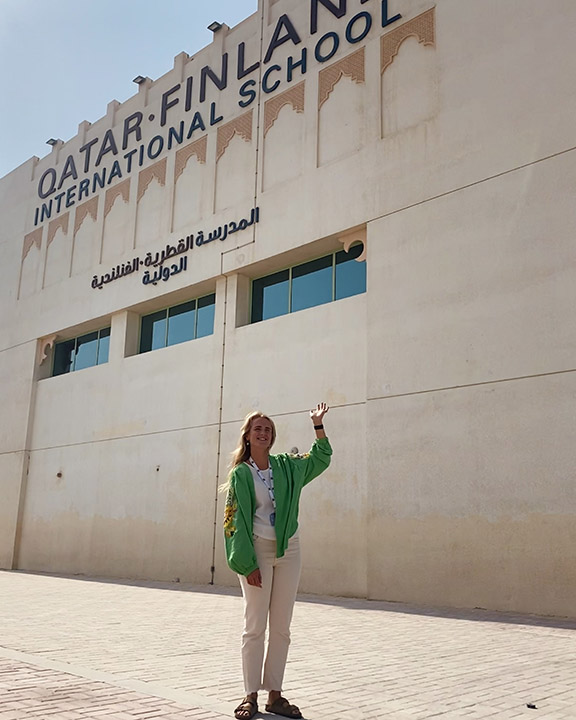
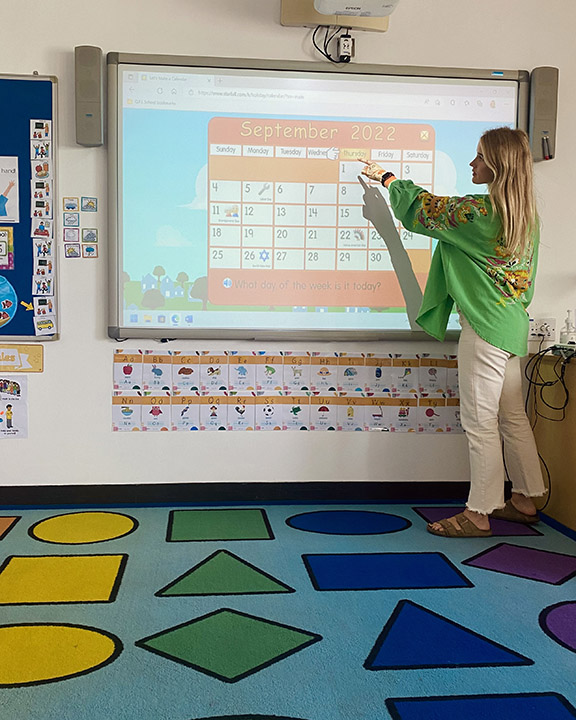
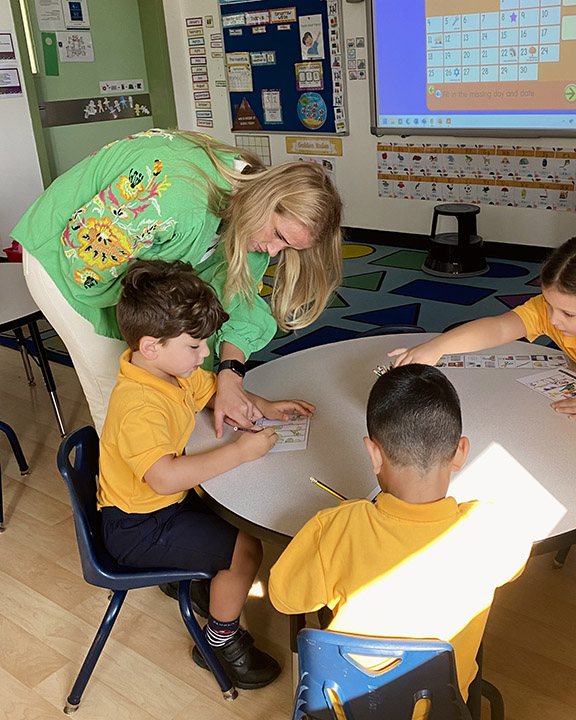
My name is Nelli Numminen. I’m a class teacher at Qatar Finland International School in my first year. I graduated from the University of Turku. Working at Q.F.I. School had been my goal since I did my teaching practice here in early 2019. I moved to Qatar at the beginning of August 2022 and work started straight away. Luckily the school itself was already familiar to me, and in a sense, it felt like coming home. I’ve used a lot of the information and knowledge that I got during my training period here, and it has really helped in the beginning whilst the days are quite hectic.
I visited the school for the first time during the winter of 2018 by attending a school tour. It was obvious to me from the moment I stepped in and visited some of the lessons being held by some of the teachers that this is the place where I want to work in the future. Working at school wasn’t at that time obviously possible for me because I hadn’t finished my studies yet. Luckily, I had one teaching practice remaining as a part of my bachelor’s studies and I started to look whether it would be possible to do it at Q.F.I. School.
Teaching opportunities abroad are not something that are advertised or talked about a lot at university, and I wouldn’t have known about the school or the opportunity to do teaching practice there if my husband’s mother hadn’t worked at the school. She gave me the push and convinced me to apply by saying that Q.F.I. School would be the perfect place for me to learn and grow as a teacher.
I typically started my days at the same time as the other teachers which meant that I was present at the school by 7.00 am at the latest because the first lesson starts at 7.30 am. During the days I got to teach on my own, co-teach, and observe my trainee mentor’s lessons. I also got to be a part of the amazing team of teachers who were teaching at that grade level, and they took me in as one of their own, not merely as a trainee. In this team, I got to share my thoughts and ideas and I felt that if I say something it is as equally valued as any of the other team members’ opinions.
My days ended when the students left so around 1.00 pm. After this, I was free to go but I usually stayed at the school to prep materials or plan the upcoming lessons.
I would say that the most valued features while doing teaching practice abroad are being social and ready to get to know a lot of new people in a short period of time. You also need to be friendly and kind to the children and the parents and respect the local culture. Obviously, it doesn’t hurt if you are also hardworking and ready to give your own ideas and thoughts about teaching.
There were quite a few highlights during my trainee period, but I would say that the positive feedback from the teachers (not only from my trainee mentor) was one of the biggest highlights during the period and made me feel more confident that I’m studying the right profession for myself. I also got to be a part of the parent-teacher conferences and practice the home-school communication that we don’t get to practice at the university or during the trainee period in Finland.
All in all, I would say that the experience in total was a highlight for me and pushed me forward in my studies and later on applying to work here.
I would recommend doing a teacher practice abroad for anyone who feels that they can manage to teach and get around using English. You also need to be ready to work in a different culture and work setting than you might have been experiencing in Finland. You need to be ready to put yourself out there, so to say, to get the most out of the experience. If you have ever dreamt of working as a teacher outside Finland, a practice period is a good way to get a taste of that and to also learn whether working abroad is something that you really want to do in the future.
Like I’ve previously emphasized the trainee period had a HUGE impact on my current work situation. I don’t think that I would be here today without the trainee experience that I had. I think it made it easier for both parties (myself and the school) to apply and hire me when I had the experience from the school, and I had an idea of what was I getting myself into when applying.
Doing the teaching practice abroad was something that made my future and helped me get to where I am today. I couldn’t be happier about the fact that I am able to work in an international setting alongside some of the top teachers in the world. If you have even the slightest ambition to apply, I highly recommend you to do so based on my own experience! 😊


My name is Nelli Numminen. I’m a class teacher at Qatar Finland International School in my first year. I graduated from the University of Turku. Working at Q.F.I. School had been my goal since I did my teaching practice here in early 2019. I moved to Qatar at the beginning of August 2022 and work started straight away. Luckily the school itself was already familiar to me, and in a sense, it felt like coming home. I’ve used a lot of the information and knowledge that I got during my training period here, and it has really helped in the beginning whilst the days are quite hectic.
I visited the school for the first time during the winter of 2018 by attending a school tour. It was obvious to me from the moment I stepped in and visited some of the lessons being held by some of the teachers that this is the place where I want to work in the future. Working at school wasn’t at that time obviously possible for me because I hadn’t finished my studies yet. Luckily, I had one teaching practice remaining as a part of my bachelor’s studies and I started to look whether it would be possible to do it at Q.F.I. School.
Teaching opportunities abroad are not something that are advertised or talked about a lot at university, and I wouldn’t have known about the school or the opportunity to do teaching practice there if my husband’s mother hadn’t worked at the school. She gave me the push and convinced me to apply by saying that Q.F.I. School would be the perfect place for me to learn and grow as a teacher.
I typically started my days at the same time as the other teachers which meant that I was present at the school by 7.00 am at the latest because the first lesson starts at 7.30 am. During the days I got to teach on my own, co-teach, and observe my trainee mentor’s lessons. I also got to be a part of the amazing team of teachers who were teaching at that grade level, and they took me in as one of their own, not merely as a trainee. In this team, I got to share my thoughts and ideas and I felt that if I say something it is as equally valued as any of the other team members’ opinions.
My days ended when the students left so around 1.00 pm. After this, I was free to go but I usually stayed at the school to prep materials or plan the upcoming lessons.
I would say that the most valued features while doing teaching practice abroad are being social and ready to get to know a lot of new people in a short period of time. You also need to be friendly and kind to the children and the parents and respect the local culture. Obviously, it doesn’t hurt if you are also hardworking and ready to give your own ideas and thoughts about teaching.
There were quite a few highlights during my trainee period, but I would say that the positive feedback from the teachers (not only from my trainee mentor) was one of the biggest highlights during the period and made me feel more confident that I’m studying the right profession for myself. I also got to be a part of the parent-teacher conferences and practice the home-school communication that we don’t get to practice at the university or during the trainee period in Finland.
All in all, I would say that the experience in total was a highlight for me and pushed me forward in my studies and later on applying to work here.
I would recommend doing a teacher practice abroad for anyone who feels that they can manage to teach and get around using English. You also need to be ready to work in a different culture and work setting than you might have been experiencing in Finland. You need to be ready to put yourself out there, so to say, to get the most out of the experience. If you have ever dreamt of working as a teacher outside Finland, a practice period is a good way to get a taste of that and to also learn whether working abroad is something that you really want to do in the future.
Like I’ve previously emphasized the trainee period had a HUGE impact on my current work situation. I don’t think that I would be here today without the trainee experience that I had. I think it made it easier for both parties (myself and the school) to apply and hire me when I had the experience from the school, and I had an idea of what was I getting myself into when applying.
Doing the teaching practice abroad was something that made my future and helped me get to where I am today. I couldn’t be happier about the fact that I am able to work in an international setting alongside some of the top teachers in the world. If you have even the slightest ambition to apply, I highly recommend you to do so based on my own experience! 😊
Dr. Kaj Björk is an economist with extensive experience of development cooperation programs, projects, and business operations across Africa, Asia, the Middle East, and Europe. Specialized in finance management for large-scale budgets he has been involved with leading and managing assignments for the World Bank, European Union, United Nations, and African Development Bank. Key assignments have been in Cambodia, Ethiopia, Ghana, Kenya, Malawi, Nigeria, Saudi Arabia, Swaziland, Thailand, and Zambia. One major project has been in provision of finance support and management training leading to overhaul of Zambian education through an economically viable and governance-focussed education sector strategy.
Dr Tajalsir Kardaman is a bilingual university educator, trainer and career guidance expert, with more than 32 years of teaching in a wide range set of universities and colleges in Sudan and in the State of Qatar. He enjoys extensive and rich experience in designing, delivering and assessing powerful curriculum in the field of business management in light of situational peculiarities. His academic background is in cross-cultural management with concentration on application of participative, reflection-in-action, approaches to organizational change, group dynamics and individual development. As a Faculty member at Qatar University’s College of Business and Economics, he held several leadership positions through which he figured out prominently as the key person in creating and effectively managing its Continuing Education Function and rebuilding and moving its academic libraries as a powerful supporter of program and institutional accreditation, in addition to strategically streamlining its’ Office of Faculty and Instructional Development. This was based on Dr Kardaman’ s experience in developing and implementing institutional effectiveness initiatives including strategic and business planning, policy development, strategic unit self- assessment and program evaluation with emphasis on organizational learning and continuous improvement.
Moreover, Dr Tajalsir has contributed immensely to the development and implementation of a national approach to developing career guidance in the State of Qatar at the national, sector and institutional levels under the umbrella of the Qatar National Vision 2030. Key among such contributions is the creation and successful management of Qatar’s Career Guidance Stakeholder Engagement Platform, his leadership in developing a set of national level projects including the National Career Guidance Framework and a Qualification Programme for Career Practitioners, as well as a concerted effort at transitioning Qatar Career Fair Center, a member of Qatar Foundation, to a full-fledged Career Development Center.
Dr Tajalsir Kardaman is a bilingual university educator, trainer and career guidance expert, with more than 32 years of teaching in a wide range set of universities and colleges in Sudan and in the State of Qatar. He enjoys extensive and rich experience in designing, delivering and assessing powerful curriculum in the field of business management in light of situational peculiarities. His academic background is in cross-cultural management with concentration on application of participative, reflection-in-action, approaches to organizational change, group dynamics and individual development. As a Faculty member at Qatar University’s College of Business and Economics, he held several leadership positions through which he figured out prominently as the key person in creating and effectively managing its Continuing Education Function and rebuilding and moving its academic libraries as a powerful supporter of program and institutional accreditation, in addition to strategically streamlining its’ Office of Faculty and Instructional Development. This was based on Dr Kardaman’ s experience in developing and implementing institutional effectiveness initiatives including strategic and business planning, policy development, strategic unit self- assessment and program evaluation with emphasis on organizational learning and continuous improvement.
Moreover, Dr Tajalsir has contributed immensely to the development and implementation of a national approach to developing career guidance in the State of Qatar at the national, sector and institutional levels under the umbrella of the Qatar National Vision 2030. Key among such contributions is the creation and successful management of Qatar’s Career Guidance Stakeholder Engagement Platform, his leadership in developing a set of national level projects including the National Career Guidance Framework and a Qualification Programme for Career Practitioners, as well as a concerted effort at transitioning Qatar Career Fair Center, a member of Qatar Foundation, to a full-fledged Career Development Center.
The Responsibilities of a Subject Teacher:
I would like to get at least one more adventure professionally until it’s too late, I thought when I saw the advertisement of an open position of a principal in Kazakhstan. I am experienced internationally and have been lucky enough to get to know different cultures and different educational systems. During the last 13 years I have been managing a private language school in Finland, so the concept of the ECF school in Kazakhstan was very close to the work I have been doing. I have experience in starting a school from scratch, conducting CLIL, being responsible for the student intake, marketing etc., so the new challenge was familiar and extremely interesting to me. At the same time, I have a strong desire to pass on the experience and knowledge I have gained during the years to the new school.
When you start a school from zero, the beginning is always challenging. When you add the cultural differences, lack of language skills, and other difficulties, you really must work hard to overcome the situations. The most important thing is to remember that the beginning in every project is challenging, but there will be light at the end of the tunnel. It is a great feeling when you see progress in everyday activities at school. To me personally working as a principal at FASAF (Finland Academic School Al-Farabi) has already given a lot. I have been able to meet wonderful people, work with them, assist, train, and encourage my local and Finnish colleagues as well as learn a lot from them. Working in Kazakhstan has given me a new perspective to the things I do in Finland. So far it has been a valuable experience.
Our personnel consist of Finnish teachers, local teachers, and learning assistants. It has been a wonderful experience working with the local staff who are motivated to learn the Finnish educational approach. The people in Shymkent, Kazakhstan are kind, open, positive, and easy to get along with. The students are mainly local as there are very few foreigners living in Shymkent. The students are delightful, excited to learn new things, and very enthusiastic about almost anything. Our Finnish teachers are mainly mentoring the local teachers, but also teaching some hours a week. I am very proud of our Finnish teachers, their professional expertise, and their ability to adapt to the completely new culture when establishing a new school.
Shymkent itself is an interesting city. There are a lot of things you can do in your spare time. The prices are low, so you can really enjoy some luxuries in life. I have been very happy living in Shymkent and have not experienced any homesickness so far. Nice and warm outside temperature lasts from March until October. During the summer months (June, July, and August) the temperature may rise very high.
If you are considering a work opportunity outside Finland and, for example, in Shymkent, Kazakhstan, you need to have an open mind, the ability to adapt to changes, flexibility, and eagerness to develop yourself and develop others. We have a brilliant staff ready to support each other, help and guide, laugh, and enjoy every day working together. We would be very happy to welcome you to our great team!
David Marsh PhD is Fellow of the Royal Society of Arts, London. He has experience of tasks in over 40 countries, contributed to over 160 publications, presented over 130 invited keynotes, and received 5 degrees from the United Kingdom, Finland, and Spain. Experience in Finland and across Europe has been complemented with assignments in Africa (Ethiopia, Mozambique, Namibia, South Africa), Central & East Asia (Japan, Kazakhstan, Korea), Iceland, India, Kosovo, Middle East (KSA, UAE, Qatar), Russia, Southeast Asia (Brunei, Hong Kong, Laos, Malaysia, Singapore, Thailand, Philippines, Vietnam), North America, (Mexico, USA), and South America (Argentina, Colombia, Peru). Having co-launched Content and Language Integrated Learning (CLIL) under the auspices of the European Commission, his work has been recognized through various awards including the English-speaking Union (2008), Estonian Educational Sciences (2009), Doctor honoris causa VIU (2013), and Honorary Chair, Catedrático Extraordinario de Educación Bilingüe, UCAM (2017). His key current interests are educational change management, CLIL and bilingual education, realizing OECD global competences, and adjusting educational practices for digitally astute young people.
The main responsibilities of the principal:
Dr. Kari Pitkänen has retired in 2019 from the position of Director of Strategic Planning and Development (also having the title of Professor) which he held at the University of Jyväskylä, Finland. His academic education is in social sciences with specialization in population issues, including the role of education in social processes. When taking the position of Director of Education at the University of Jyväskylä (2007-2011) he had had several academic positions at the University of Helsinki since 1974. At the time when he left the University of Helsinki he acted as Professor of Sociology (Population Studies) and as the Head of the Sociology Department. At the University of Jyväskylä he has been the key person in building the University’s renowned student welfare program, Student Life, and has supported the Faculty of Education and Psychology in developing international programs in teacher training and educational leadership as well as in preparing institutional level research grant applications.
Professor Jouni Välijärvi has been Director of the Finnish Institute for Educational Research at the University of Jyväskylä, national project manager of the OECD PISA, and Finland representative at the International Association for the Evaluation of Educational Achievement. He has acted as expert for the OECD, European Union, and key Finnish administrative and stakeholder organizations including the Ministry of Education, National Board of Education, Finnish Education Evaluation Centre, and the Higher Education Evaluation Committee. His experience includes acting as member or chair for more than 30 expert or advisory groups intended to develop education including pedagogy, curriculum, evaluation, STEM and education systems.
Gisella Langé specializes in curriculum development, intercultural education, language learning solutions, and web-based teacher training. Alongside acting as Foreign Languages Inspector with the Italian Ministry of Education, she has extensive experience of working as an expert on European Commission and Council of Europe assignments. Most recently this has involved advising on the 2024 OECD/PISA Foreign Language Assessment Framework design, and Eurydice Key Data on Teaching Languages at School in Europe. She has also been instrumental in the realization of innovative language learning practices through international project development of early language learning, the European Language Portfolio, and Content and Language Integrated Learning (CLIL).
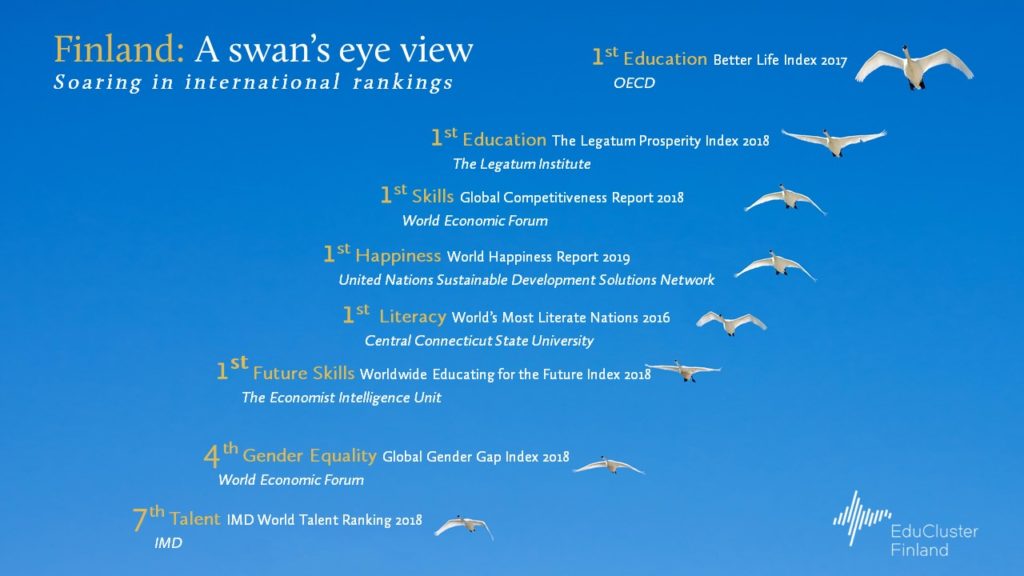
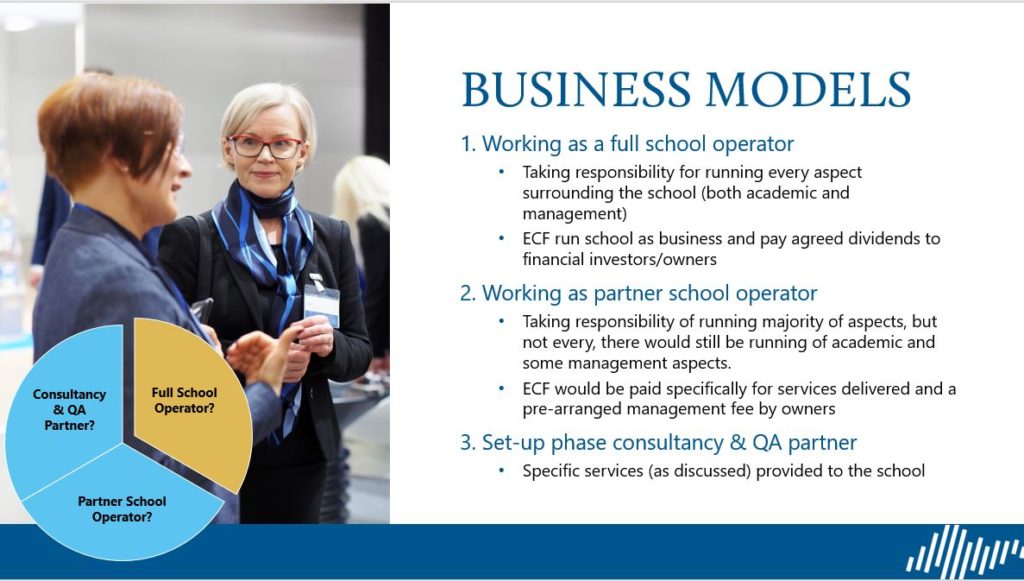
Realizing PISA global competence-based learning in subject teaching
Leading schools have talked about developing competences for many years. But ‘walking the talk’ means taking action.
Involving students of all ages, Global Competences develop the capacity to examine life from essential perspectives.
Finland has been instrumental in successfully enabling students to gain these competences through what we call curricular transversals. These transversals are learning modules which link to topics in the existing curriculum. They systematically develop the knowledge, values, skills, and attitudes of students from Grades 1-12. This is one way in which schools in Finland truly internationalize, locally and globally.
The secret of success is where a school
Gaining skills for success in the ever-changing World
About 20 years ago it was evident that students around the world were not performing well in science, technology, engineering and mathematics (STEM).In addition there was a noticeable gap between boys and girls taking an interest in studying, and pursuing a career in science and technical fields. As a result, specialized programmes were developed enabling students to learn about social problems from scientific, mathematical and technical perspectives. STEM then became STEAM, as in Finland, because of recognition that some arts subjects (e.g. history, geography, multimedia, entrepreneurship) should be included in these ground-breaking inter-disciplinary programmes.
STEAM combined creative thinking, understanding of the real world, and scientific study into a single learning experience.
In an ever-developing world, it is essential that schools prepare students for many roles and eventualities, and not just for a single career. Students need to understand concepts from multiple angles. Then they can solve problems by creating meaningful inter-disciplinary solutions. This is the core of STEAM, bringing together multiple disciplines and providing students with a holistic understanding of knowledge, skills and problem-solving challenges.
Finland has been practising STEAM Education successfully for many years, as can be seen by the success in PISA and TIMSS. One reason for this is that all teachers receive essential pedagogical training in methods suitable for STEAM as part of their education. Another is that it has been realized in schools, and also as extra-curricular activities.
The secret of success is where a school:
Fostering creativity in classrooms
Creativity is the way, and innovation is the outcome. When talking about important future skills and competences, creative thinking always comes at the top of the list. Sophisticated artificial intelligence may soon perform many tasks previously done by people, but creative thinking is an area where human curiosity will continue to outshine Big Data into the foreseeable future.
Many countries have directed their education systems to focus on mathematics and reading literacy skills that are measured with regular standardized testing. Therefore, attention in other areas is generally given only to academic performance as measured by standardized tests. Finland has bypassed this trend by maintaining focus on both achievement of strong academic skills and enhancing creative thinking across all subjects.
Globally there is an increasing realization that some learning may be highly valuable even though it cannot easily be measured. Creativity is one of these elusive but essential curricular goals. So much so that PISA 2021 will now examine how schools within educational systems achieve high levels of creativity, an increasingly recognised global competence, in learning outcomes.
Creative thinking can be successfully realized in a school that
Achieving inclusion through individualized teaching practices
Like DNA each student is unique. Being unique makes that individual special.
Certain students have special needs, at certain times, in our schools. The need may not be a problem. It could be an opportunity because a child appears particularly gifted or skilled in achieving something valued in society. It could be a challenge caused by the student facing significant learning difficulties in a subject, having suffered loss of a loved one in the family or being hospitalized due to illness.
In Finnish schools the logic is that every child is likely to have some form of special need at some point in their school career. This need, whatever the cause, can result in barriers to learning. Overcoming these barriers in a timely and constructive way is one of the drivers of success in Finnish education. This results in high rates of inclusion (students not separated due to long or short term physical or psychological challenges) and equally high levels of student retention.
When a student has a special need the Finnish school increases opportunities for individualized learning. This does not necessarily mean that the student studies alone in isolation from others. It means that learning pathways are provided by the teacher for the student to successfully manage a period of prolonged absence from school (such as hospitalization), a problem learning a subject such as maths (dyscalculia), reading (dyslexia), problems with concentrating on learning (attention deficit disorders), or disruptive behaviour.
Overcoming barriers to education means developing innovative ways to maintain the student’s membership of the school community (to avoid exclusion and maximize inclusion) and enhance the achievement of successful learning outcomes (through emotional support mechanisms and academic learning support).
The secret of success is where a school
Finland’s new curricular innovation: developing systems thinking and global competences
Finland is a global leader at integrating learning through different subjects using high-impact teaching methods. It also believes that education is a process not an event. Maintaining its position at the top of international rankings such as PISA means continuously innovating and responding to rapid changes in the local and global environments. This is where Phenomenon-based Learning (PhBL), which is a sophisticated form of problem-solving, is a force to achieve excellence in teaching and learning practices, and overall high educational performance.
PhBL is a curricular technique which has become the hallmark of the latest Finnish National Curriculum Framework. It involves integration of different subjects to create a single learning experience in which students look at a phenomenon from different academic real-world perspectives.
The intended learning outcomes include knowledge about the topic but most importantly systems thinking (seeing patterns in information). The result is development of advanced problem-solving skills and the potential for creative thinking. PhBL takes project-based learning to a new level of higher order thinking through deep focus on looking at a topic from different academic perspectives (such as water, carbon footprint, migration, pandemic, physical wellbeing).
The secret of success is where a school
Developing Content and Language Integrated Learning (CLIL)
Originally developed in Finland CLIL has become a global change agent in radically improving how languages are taught and learnt. As with Linux, which was also developed in Finland at the same time, CLIL is a type of open-source pedagogy that provides an integrative methodology for different school contexts. Referred to as the ‘ultimate communicative methodology’ CLIL has become a signature pedagogy for leading edge schools in countries around the world. These schools may be fully international, bilingual, or those in which high levels of additional language competence are desired.
CLIL is a dual-focused approach in which an additional language (most commonly English) is used for the simultaneous teaching of both content and language. It is used in schools where more than one language is used for the learning of both content and language. It is not a new form of language education, and it is not a new form of subject education. It is an innovative fusion of both. Put simply it is a bilingual and not a monolingual methodology such as English as the Medium of Instruction (EMI).
Development of CLIL is usually through the 5c Framework where teaching focuses simultaneously on content (curricular topics); communication (essential language needed to learn about the topics); cognition (thinking skills and processes required to learn about the topic); competences (skills to carry out actions relating to the topic); and community (linking of topics to the local and global worlds).
The secret of success is where a school
Enhancing student mental and physical wellbeing to strengthen school communities
Healthy child development from early years through to late adolescence benefits from an informed and supportive relationship between home and school. In Finland, each school community is seen as being as strong as its weakest link. This has resulted in Finnish schools giving a high level of attention to identifying strengths and weaknesses of relations (teacher-student; home-school; school-society; student-student) and developing processes for maintaining high levels of diligence and proactivity. It has also resulted in Finnish public schools across the country not having a high level of variance in relation to care, quality, and performance.
The fact that students represent the largest number of people in any school community means that Finnish schools pay considerable attention to student wellbeing. This may be reactive (recognising a localized problem such as bullying) or pro-active (reacting to incoming data on future trends such as increases in student weight gain).
Wellbeing is a prerequisite for successful learning. Evidence shows that the experience of a positive, supportive, and collaborative atmosphere enhances the well-being and performance of everyone, students, teachers, and parents alike. A key Finnish strategy involves maximizing communication within the school on detecting potential problems (which may range from individual student loneliness through to problems with cyberbullying). Then, rapidly activating consensual localized solutions based on multi-professional research and insights.
The secret of success is where a school
Developing high-impact teaching and learning activities for Generation Z
Finland has an impressive track record in challenging conventional wisdom and showing evidence of teaching practices that are particularly successful. Educational practices in Finland are also highly adaptable. This adaptability has been vital in responding to the learning needs of Generations Z and A (born 1995-2025). These young people are neo-digital natives who devote considerable time and energy to on-screen activities. This affects how they behave at school, and in classrooms.
In long-standing Finnish tradition our teachers have turned challenges into opportunities, and problems into solutions. This is through designing and testing high impact practices. These practices are then compared to the outcomes of global educational meta-analysis research.
Perhaps surprisingly they include a wide range of activities such as in-class methods, augmented and virtual reality, school interpersonal atmosphere, homework, play, length of school breaks…) all of which have been found to have a high effect size – literally high-magnitude features of school life which work well with students of today and tomorrow.
This enables Finland to sustain high performance global ranking in education year-on-year by designing, testing, and scaling up quality teaching and learning practices. Finland’s ability to score high levels of success in global comparisons of education since 2000 is based partly on the 3 L’s – Look, Listen and Learn (look at what is happening in society, listen to what students, parents and teachers say, learn to make change happen).
The secret of success is where a school
Realizing teacher teamwork in everyday school life
Finnish education is based on socio-constructivist theories of learning. Active student learning and collaboration from grade 1 onwards leads to successful learning of knowledge and skills. This approach can be increasingly seen in leading schools. However, this is only half the picture.
If a school is to become a powerful learning community, teachers also must cooperate, collaborate, and set an example of genuine teamwork – now a key 21st Century competence.
Finnish education recognised this some 30 years ago and has developed systemic ways in which the curriculum can be operationalized, and teaching schedules synchronized, to make teacher teamwork a normal practice in day-to-day school life. From an administrative point of view this must be done without extra expense, and with maximum efficiency.
The Finnish co-teaching movement originally started with special education teachers entering classrooms to support students who struggle with learning. Today, co-teaching can be seen in many ways from primary to high school. The outcomes are impressive in relation to time-on-task and student learning. Research shows that co-teaching improves teachers’ job satisfaction and supports professional learning.
The secret of successful is where a school
Encourage knowledge, skills, and motivation for entrepreneurial success
Entrepreneurship and an entrepreneurial mindset are something that can be learned. The components are creativity, ability to innovate, capabilities for risk management, ability to take responsibility, planning and setting goals, and managing activities to achieve these goals. As labour markets continue to experience rapid and often unpredictable change, entrepreneurial education has become a major area of interest in school development.
In Finland entrepreneurial education serves to target, develop and nurture enterprising discovery processes for students. Even if some students are not interested or otherwise engaged with developing economic ventures or enterprises, the personal qualities developed in these programmes are of value to all. Being entrepreneurial is not only about skills in planning, finance, and organization. It is a way of thinking.
The secret of success is where a school
PLACE HOLDER
Blurb
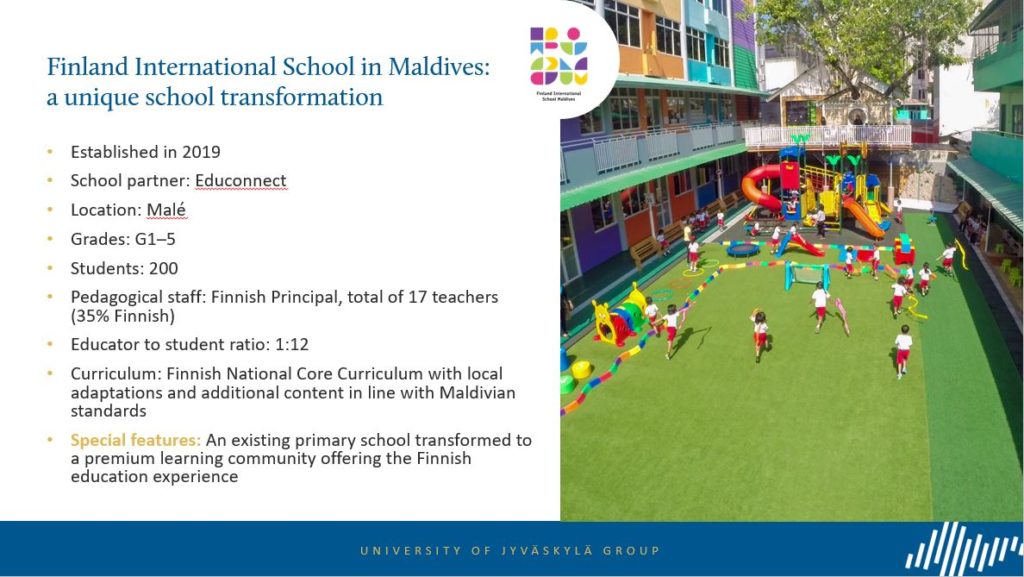
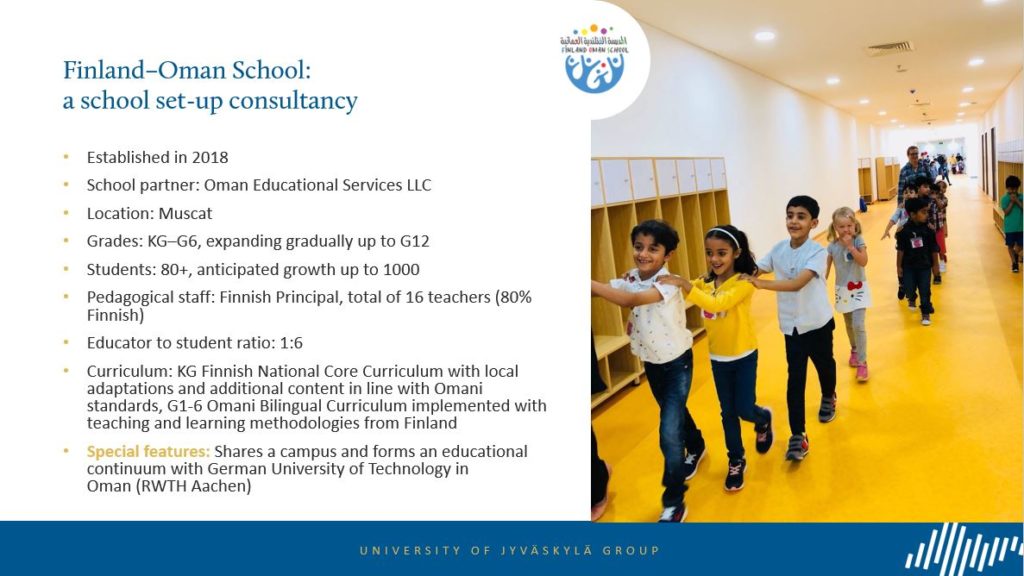
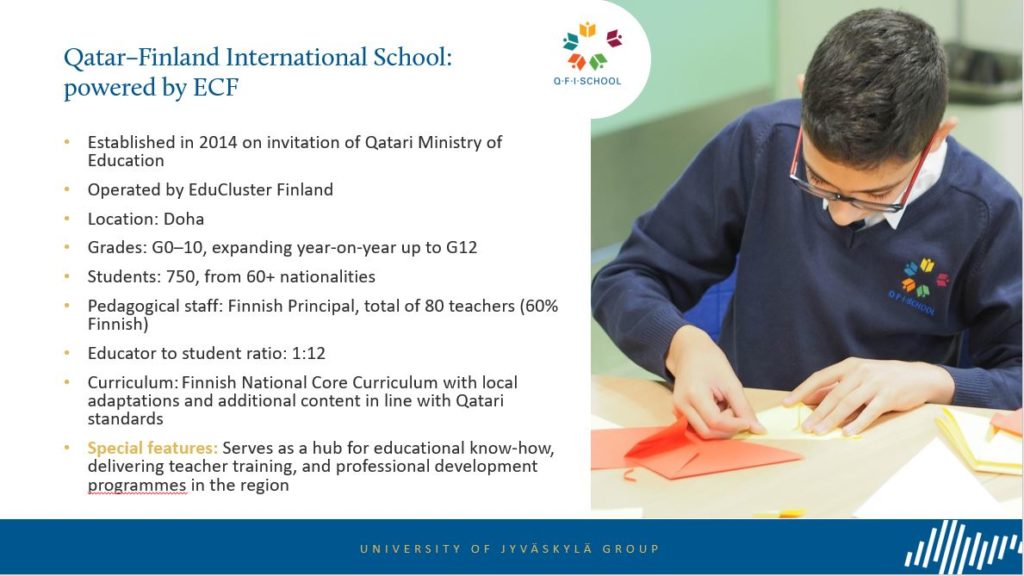
We enter 2020 celebrating and reflecting on the 2019 OECD PISA results. This is the first time that Growth Mindset is examined. Students are asked if ‘your intelligence is something about you that you can’t change very much’. Believing that we can improve ourselves through effort and reflecting on how to do it is firmly established in Finnish education. Reflection on ‘lessons learnt’ is a key operational pillar of Finnish learning organizations, including EduCluster Finland.
As we embrace 2020, we reflect on the past decade, recognize the achievements, mistakes and triumphs, and continue our pursuit of developing educational excellence globally with friends, past, present and future.
We specialise in two holistic learning approaches increasingly adopted in leading-edge schools globally, both of which were launched in Finland. 1. Content and Language Integrated Learning (CLIL), is a highly acclaimed methodology used for teaching through English in bilingual, international, and national schools. 2. Phenomenon-based Learning (PhBL) is a transversal across-the-curriculum technique recently introduced into Finland’s latest National Core Curriculum. On-site workshops provided by CLIL and PhBL experts empower educators with know-how and skills to use these high-impact practices in their classrooms.
In collaboration with our partners and school networks, we provide opportunities to experience Finnish daily school life. These hands-on visits enable educators to see Finnish education in action and make decisions on which ideas could be adopted in their own schools and countries. 1:1 mentoring and a full support service makes these opportunities highly individualised and insightful.
As re-shaped working life requires new competences and skills, our educational systems respond by pro-actively providing state-of-the-art vocational education and training programmes. Finnish VET programmes for students in other countries are accredited by the Finnish National Agency for Education, delivered through an authorised provider, and recognised at the European Qualification Framework levels 4 and 5 in the EU and most OECD countries.
The University of Jyväskylä offers a wide range of degree programmes in English. One of these is the two-year Master’s Degree Programme in Educational Sciences. The aims of this programme include developing educator competences to enhance the quality of education in global contexts. ECF facilitates study of this programme, and elements of it, for client needs in countries outside of Finland. It also acts to provide tailored university level study programmes according to specific interests across the whole educational spectrum from KG to Higher Education and TVET.
We understand that to succeed in changing markets, you need to have a skilled workforce, no matter the field. This is why we offer flexible and work-based learning opportunities for young learners and adults. The qualifications are accredited by the Finnish National Agency for Education, delivered through the authorised provider Jyväskylä Educational Consortium Gradia, and recognised at the European Qualification Framework levels 4 and 5 in the EU and most OECD countries.
For groups of educators seeking a compact and interactive training package, we have developed a portfolio of FINNspire Days which offer a gateway to Finland’s education concept. Use our FINNspire Programme Builder to create your bespoke learning experience.
For those looking for more comprehensive, longer-term solutions, we also offer cutting-edge professional development programmes tailored to your education strategy.
